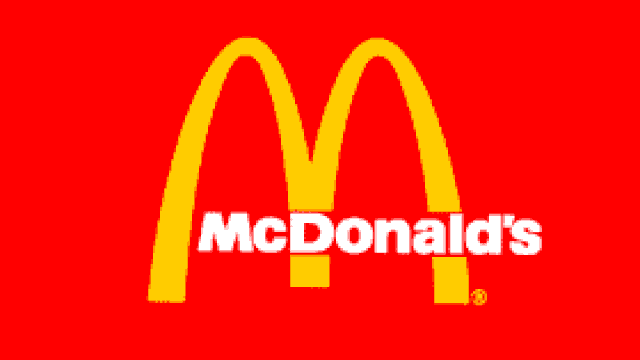At the dawn of the world wide web, early adopters were scooping up domain names like crazy. This led to quite a few battles over everything from MTV.com to McDonalds.com.
In May 1994, Wired reported that just a third of Fortune 500 companies had registered the obvious versions of their names. The next few years were chaotic to say the least. And boy were there some truly strange pairings. Like when the makers of Candyland went after a porn company. And that time some meat lover went trolling and really pissed off PETA.
Below, we have a brief history of the world wide web’s early domain name wars. Sometimes things were settled with money, other times with lawsuits. But the “rightful” owner (read: the big guys) always won.
MTV.com
Former MTV VJ Adam Curry snapped up the mtv.com domain name back in 1993. Curry supposedly told MTV what he was doing and they initially didn’t have any problem with it. In fact, according to Curry, MTV said that they had “no interest in the internet.”
All that changed in 1994 when Curry quit MTV. The network suddenly realised that it was a space that they should probably control. The TV network sued Curry but he vowed to fight, claiming that his battle was the “Roe v. Wade of the Internet.”
Curry ultimately gave up control of the name, settling out of court for an undisclosed amount. I’m no reproductive rights lawyer, but I’m pretty sure that’s not how Roe v. Wade was settled.
McDonalds.com
In 1994, a reporter named Joshua Quittner bought mcdonalds.com for a story he was writing for Wired about the value of domain names. But nobody at McDonald’s seemed to have any interest in being online.
“Are you finding that the Internet is a big thing?” a media relations rep reportedly asked Quittner. We may laugh about it now, but for most Americans it really wasn’t quite a “big thing” yet. As late as 1995 people were still writing articles about how the internet was just a bunch of hype.
At the end of his article Quittner encourages people to email ronald@mcdonalds.com with ideas for what to do with the domain. Should he auction it off? Or keep it as a trophy, he wondered? Interestingly, “sell it to McDonald’s for a profit” wasn’t floated as an idea in the piece.
Quittner eventually agreed to hand over the name to McDonald’s if the company made a donation to a charitable cause of his choice — $US3,500 to a public school in Brooklyn for computers and internet access.
And yes, the GIF above is from mcconalds.com in November of 1996.
Candyland.com
Porn company Internet Entertainment Group, Ltd. purchased Candyland.com back in 1995. As you can imagine, Hasbro, the makers of the Candyland board game weren’t terribly pleased to learn this. They sued to get control of the domain.
The court found in favour of Hasbro, pointing out that they had held the trademark on Candy Land since 1951. They also raised the minor detail that a reasonable person might expect to find something much more innocent at a domain associated with a children’s game.
“The probable harm to Hasbro from defendants’ conduct outweighs any inconvenience that defendants will experience if they are required to stop using the CANDYLAND name,” the ruling said. The porn company was allowed to keep the name for 90 days after the ruling to let people know that they were moving to another domain.
PETA.org
Michael Doughney nabbed peta.org back in 1995 because he loved animals. Specifically, eating and wearing them. His website was called People Eating Tasty Animals and needless to say the other PETA, People for the Ethical Treatment of Animals, weren’t too pleased.
The animal rights organisation sued Doughney and the case wasn’t settled until 2001. Doughney argued that his site was parody and thus afforded First Amendment protection, but the Fourth Circuit Court of Appeals disagreed. The court said that Doughney was obliged to give up the domain due to the Anti-Cybersquatting Consumer Protection Act (ACPA) of 1999.
Roadrunner.com
Road Runner Computer Systems scooped up roadrunner.com and had a legitimate trademark claim for the name Road Runner in Tunisia. Time Warner wasn’t too happy about that. You see, they had the US trademark for the Road Runner cartoon character.
Time Warner approached domain register Network Solutions (NSI) in July of 1995 and demanded that the domain name be placed on hold. Time Warner was initially successful, but both parties went to court. The computer company eventually settled with Time Warner and handed over the domain, though the details of their agreement were never disclosed.
Update: Warner Brothers continues to own roadrunner.com as of 2014, though it appears to be inactive.
Picture: The GIF featured at McDonalds.com in 1996, courtesy of the Wayback Machine
